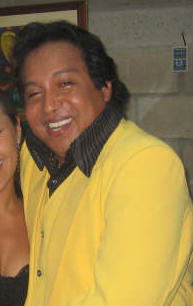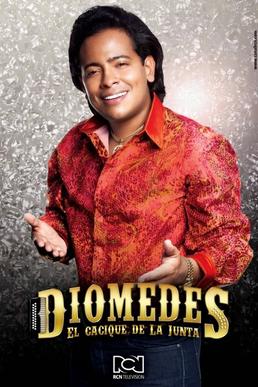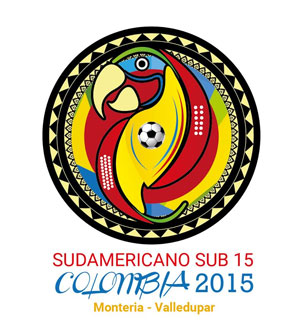Ruy López de Villalobos was a Spanish explorer who led a failed attempt to colonize the Philippines in 1544, attempting to assert Spanish control there under the terms of the treaties of Tordesillas and Zaragoza. Unable to feed his men through barter, raiding, or farming and unable to request resupply from Mexico due to poor knowledge of the Pacific's winds and currents, Villalobos abandoned his mission and fled to the Portuguese-held Moluccas, where he died in prison. He is chiefly remembered for some sources crediting him with naming Leyte the "Philippine Island" in honor of the Spanish crown prince Philip. The name was later extended across the entire Philippine Archipelago and its nation.
Kallmann syndrome (KS) is a genetic disorder that prevents a person from starting or fully completing puberty. Kallmann syndrome is a form of a group of conditions termed hypogonadotropic hypogonadism. To distinguish it from other forms of hypogonadotropic hypogonadism, Kallmann syndrome has the additional symptom of a total lack of sense of smell (anosmia) or a reduced sense of smell. If left untreated, people will have poorly defined secondary sexual characteristics, show signs of hypogonadism, almost invariably are infertile and are at increased risk of developing osteoporosis. A range of other physical symptoms affecting the face, hands and skeletal system can also occur.
Pinto is a municipality in the Community of Madrid, Spain. It is located in the central area of the Iberian Peninsula at an altitude of 604 meters, 20 kilometers south of Madrid, and covers 62.7 square kilometers. In 2018, Pinto had a population of 51,541. It is home to the Torre de Pinto, the Pinto Castle, and the Éboli Tower, which is a 14th-century tower used as a prison for nobles who fell out of favor with the king.
Yñigo, Íñigo, or Iñigo Ortiz de Retes was a 16th-century Spanish maritime explorer of Basque origin, who navigated the northern coastline of the Pacific–Melanesian island of New Guinea and is credited with bestowing its current name.

Diomedes Díaz Maestre was a Colombian vallenato singer, songwriter, and composer. He has been named the "King of Vallenato" and is nicknamed El Cacique de La Junta, which was given to him by another vallenato singer, Rafael Orozco Maestre, in honor of Díaz's birthplace.

Iker Jiménez Elizari is a Spanish journalist and television host. He is a graduate in sciences of information from the Complutense University of Madrid and the European University of Madrid, and gained prominence directing and presenting, along with his wife and collaborator Carmen Porter, mystery investigation program Milenio 3 in Cadena SER, after which they moved to television with the program Cuarto Milenio in Cuatro. In 2020 he created the YouTube podcast La Estirpe de los Libres, and the same year started presenting the divulgation program Horizonte, initially in Telecinco and later in Cuatro.
Maestre de campo was a rank created in 1534 by the Emperor Carlos V, inferior in rank only to the capitán general and acted as a chief of staff. He was chosen by the monarch in the Council of State, and commanded a tercio. Their powers were similar to those of the old marshals of the Kingdom of Castile: they had the power to administer justice and to regulate the food supply. Their personal guard consisted of eight German halberdiers, paid by the king, who accompanied them everywhere. Immediately inferior in the chain of command was the sargento mayor. One of the most famous maestre de campos was Julian Romero, a common soldier who reached that rank and that brought victory to the Spanish tercios at the battles of San Quintín and Gravelines.

The Convento de San Marcos was a convent in the city of León, Castile and León, Spain, that is today an operating luxury parador hotel. It also contains a consecrated church and museum, and is one of the most important monuments of the Renaissance in Spain. It is one of the greatest architectural jewels of León, together with the Cathedral, the Basilica of San Isidoro and la Casa Botines. It has a highly ornamental plateresque facade.
Aureliano, equivalent to Aurelian and Aurelianus, is both a given name and a surname which can refer to:

Diomedes, el cacique de la junta is a 2015 Colombian telenovela produced and broadcast by RCN Televisión. It is based on the life of Diomedes Díaz Maestre, its highest rating was 16.5 rating people and so far averaging 13.5 rating people in the 9:00PM schedule. Since its release, it becomes the country's most-watched telenovela this year.

The 2015 South American Under-15 Football Championship was the seventh edition of the South American Under-15 Football Championship, the biennial international youth football championship organised by the CONMEBOL for the men's under-15 national teams of South America. The tournament was held in the cities of Montería and Valledupar, Colombia between 21 November and 6 December 2015.

Tarde lo conocí, is a Colombian biographical television series produced by CMO Producciones for Caracol Televisión. Based on the life of the composer and singer Patricia Teherán. It stars María Elisa Camargo in the main role.

Cristina Maestre Martín de Almagro is a Spanish politician of the Spanish Socialist Workers' Party (PSOE) who has been serving as a Member of the European Parliament since 2019.

Solomon Islands–Spain relations are the bilateral and diplomatic relations between these two countries. Solomon Islands does not have an embassy resident in Spain but maintains an honorary consulate in Madrid. Spain has an honorary consulate in Solomon Islands.
The 28th Actors and Actresses Union Awards were held on 11 March 2019 at the Circo Price, in Madrid. The gala was hosted by Ángel Ruiz and Verónica Ronda.

Pablo Derqui Maestre is a Spanish actor from Catalonia. An accomplished stage actor, he is better known to the wider public for his performances in television series such as Hispania, Isabel, Pulsaciones or Cathedral of the Sea.
Juan Martínez Téllez de los Ríos was a captain in the Royal Armies who participated in the defense of Callao, Viceroyalty of Peru, in 1624. He served as Chief Scribe of the Guatemala City council from 1631 to 1637, Attorney General from 1639 to 1642, and Mayor of San Salvador from 1647 to 1650.









